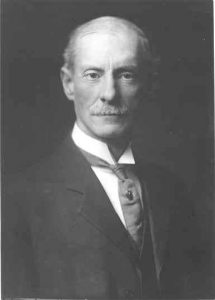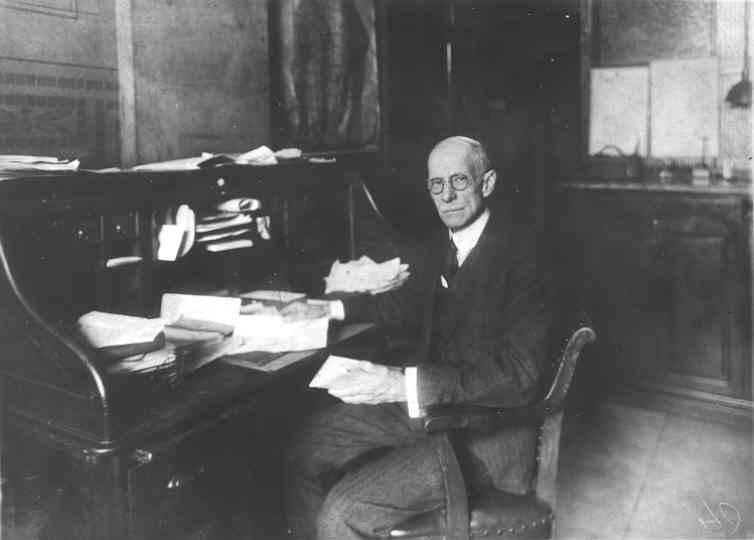
Photo info ...
Credit: Indiana University IndianapolisView Source
(Feb. 21, 1852-Mar. 27, 1925). Pharmacist, medical educator, public health advocate, and state legislator, John Newell Hurty was born in Lebanon, Ohio. He attended both the Philadelphia College of Pharmacy (1871-1872) and the Franklin Institute (1871-1873) before graduating from the Medical College of Indiana (1891), a forerunner of the .
Settling in Indianapolis in 1873, he served as chief chemist and drug foreman at Johnston & Lilly until 1879. In 1879, Hurty opened a drugstore (Hurty’s Drugstore) at the corner of Ohio and Pennsylvania streets. He set up a chemistry laboratory in the basement below and later in an extra room to the north, perhaps the first of its kind in Indiana.

Following his appointment as secretary of the State Board of Health and state health commissioner in 1896, Hurty wrote the first comprehensive pure food and drug law passed by any organized government. Covering all medicines, antiseptics, disinfectants, and cosmetics, as well as confectionery, condiments, and all “articles used for food or drink by man,” the law provided for a multitude of practices or offenses through which a food or drug might be deemed “adulterated.” The Indiana General Assembly passed it in 1899. The law preceded federal food and drug legislation by seven years.
His efforts led to many other advances, including methods for recording vital statistics adopted as a model by the Department of Health in Washington, the passage of more than 20 public health laws by the Indiana General Assembly, a silver medal for excellence in health programs awarded to the Indiana State Board of Health at the Paris International Exposition in 1900, a bronze medal at the St. Louis Exposition in 1904, and the gold medal in 1907 at the Jamestown Exposition.
Hurty’s advocacy of , however, has tarnished his reputation. The same year that he won the gold medal in Jamestown, he helped push through the nation’s first eugenics law that legalized sterilization of individuals deemed unfit to pass on genetic traits.
Having served 26 years as secretary of the State Board of Health and state health commissioner, Hurty retired in 1922 to run for the Indiana House of Representatives, where he served one term. In 1911, he served as vice president of the American Medical Association, and in 1912 he became the president of the American Public Health Association. He was the author of (1902).

Help improve this entry
Contribute information, offer corrections, suggest images.
You can also recommend new entries related to this topic.